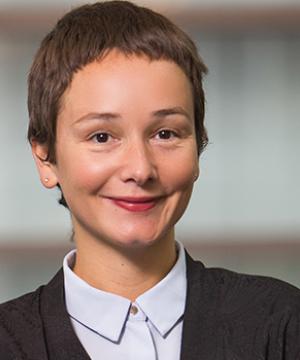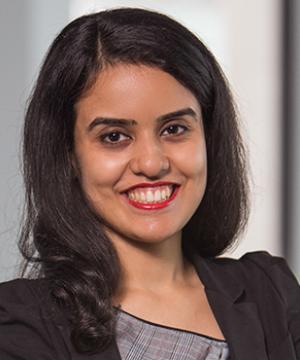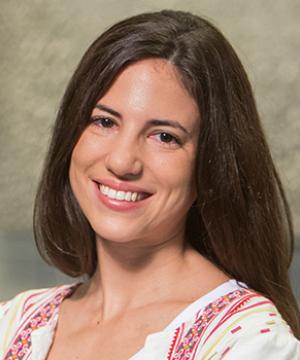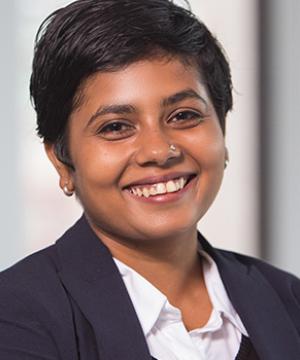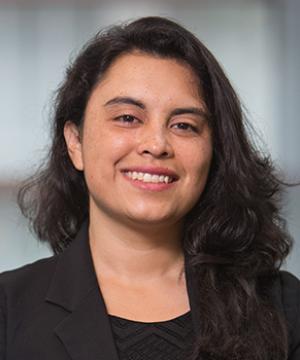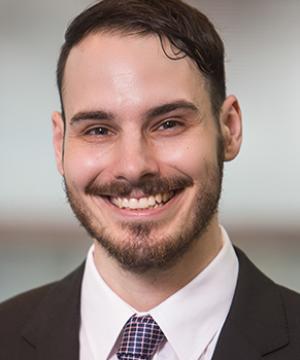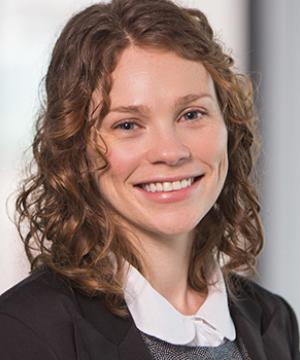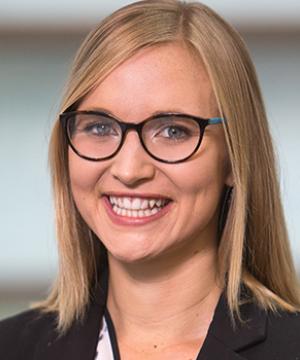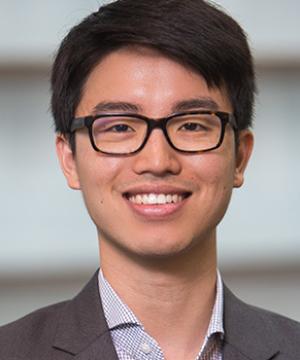Meet the 2018–2019 LL.M. Human Rights Fellows
These nine LL.M. students want to change the world.
Columbia Law School has long been a leader in educating human rights advocates and scholars. As part of this commitment, the Columbia LL.M. Program, in conjunction with the school’s Human Rights Institute, annually recruits and awards fellowships to top jurists with extraordinary potential in the field of international human rights who wish to further develop their legal skills and expertise by pursuing a one-year Master of Laws degree. This year’s fellows hail from Argentina, Australia, Canada, Colombia, France, India, South Africa, and New Zealand. Their experiences range from advising government officials to working in refugee camps in war-torn nations and representing marginalized immigrants.
“We are exceptionally proud of this group and thrilled to welcome them to the Columbia community,” says Sylvia T. Polo, the dean of Graduate Legal Studies. “These fellows bring impressive experience and achievements in the human rights arena. We look forward to watching them take their careers to the next level and become accomplished leaders in the field.”
Marion Crepet ’19 LL.M.
France
Marion Crepet, who has two masters degrees from the Sorbonne Law School in Paris, has explored human rights from the perspectives of refugees as well as diplomats. After working with the European Union delegation at the United Nations on counterterrorism sanctions and humanitarian assistance resolutions, she spent two years at refugee and internally displaced persons camps in Iraq and Jordan. “I directly confronted the reality of war and the devastation it brings upon civilians,” she says. “I began to understand that war and its atrocities also breed another equally devastating scourge: transnational crime.”
Her interest in transnational crime led her to join a project in West Africa aimed at evaluating the impact of wildlife trafficking in the subregion and to organize wildlife law enforcement training with national authorities. She learned that some wildlife traffickers can be linked to drug, weapon, and human traffickers, who use the proceeds of their crimes to fuel other criminal activities. “While we often put human rights and wildlife rights into two distinct categories, they are more like two sides of the same coin,” she says.
Crepet chose to pursue an LL.M. degree at Columbia because its human rights ethos aligns with hers. “I cherish the fact that Columbia Law School also upholds the values of diversity, integrity, and dignity, and I know it is a place where I can nurture these values and share them with others,” she says.
Meher Dev ’19 LL.M.
India
Meher Dev grew up in a Sikh family in India. Hearing stories from her grandparents who came to India as refugees about the injustices they faced during India’s partition made her feel angry and helpless.
“Despite growing up in much more stable times, I felt vulnerable for being a girl belonging to a religious minority,” she says. “I saw that women and girls around me faced sexual harassment at their schools and their workplaces. They felt a similar vulnerability due to lack of access to legal remedies.” These experiences motivated Dev to become a human rights lawyer and “developed her passion to build capacity for human rights lawyers advocating for women and minorities,” she says.
She attended Jindal Global Law School in Sonipat, India, where she co-founded the Women and Law Society. The Society undertook socio-legal awareness drives, provided legal assistance to women and developed policy proposals on equal pay and anti-sexual harassment.
After law school, Dev began advocating for rights of women belonging to different religious communities with pioneering lawyer Indira Jaising, who is a Senior Advocate at the Supreme Court of India. “I’ve learned how to translate the subjective emotions and hardships of clients into legal arguments before judges, manage client expectations, communicate with the media, and win favorable orders using court craft,” she says. Her biggest case involved helping Jaising persuade the Supreme Court to invalidate the practice of “triple talaq,” the unilateral instantaneous divorce by a Muslim husband’s utterance of the word “talaq” (“divorce”) three times.
Having herself struggled to access mentorship from human rights lawyers, she established a mentorship program with Lawyers Collective to train students in human rights lawyering, serving as its Program Director and Lead Mentor.
Before coming to Columbia, Dev worked as a research and teaching assistant at National Law University in Delhi on the Reproductive Justice in India Project in collaboration with the Center for Reproductive Rights (New York). “Our objective is to create a progressive shift in the thinking of judges and legal practitioners by creating a first of its kind reference book that provides a reproductive justice and gender-based framing to case laws on abortion, surrogacy and maternal health in India,” she explains.
After her LL.M., Dev plans to introduce American-style clinical education to Indian law schools using Columbia’s Human Rights Clinic as a model. “Columbia is leading the way in clinical legal education and international human rights advocacy,” she says. “I want to set up clinics that engage in domestic and international advocacy to secure the rights of women and minorities.”
Olivia Minatta ’19 LL.M.
Argentina
Before coming to Columbia Law School, Olivia Minatta practiced public interest law in Buenos Aires. She worked at the Human Rights Clinic at National University of La Plata and the Civil Association of Equality and Justice, a nonprofit dedicated to defending the rights of disadvantaged groups and upholding democracy in Argentina. She then took a position with the Attorney General of Argentina, drafting opinions immigration and human rights cases.
During her time at the civil association, she worked on strategic litigation and advocacy in discrimination cases using innovative tools such as budgetary analysis. “Advocacy for the advancement of rights involves a narrative battle,” she says. “It requires us to reveal unseen problems, to promote cultural and institutional changes, and to persuade judges and public officials of a different view of what justice is.”
One of Minatta’s goals while at Columbia is to explore new areas within the field of human rights and develop legal strategies to further advance human rights in Argentina. “Having an in-depth knowledge of constitutional law is crucial to develop the creative attitude that social change demands,” she says, noting that the U.S. Constitution is the basis for Argentina’s constitution. “The strong theoretical approach of American legal thought and its empirical methodology will provide valuable tools for advocacy work.”
Darshana Mitra ’19 LL.M.
India
When she was a law student at India’s West Bengal National University of Juridical Sciences, Darshana Mitra explored many areas of the law. She took courses in economics, ecology, history, and public policy. It was volunteering with the Legal Aid Society—conducting workshops for domestic workers and performing street plays to promote domestic violence awareness—that set her on a definite career path. “This work sparked my interest in community-based lawyering,” she says.
Mitra also interned at the Alternative Law Forum (ALF), a lawyers’ collective that combines practice, research, advocacy, alternative dispute resolution, and educational programming. At ALF, she represented students from African countries who were victims of racial discrimination and helped them file complaints with the police, and she traveled across India to interview human rights lawyers to document their lives and motivations. “The research taught me about the various forms a rebellious legal practice could take,” she says.
While at ALF, Mitra also worked with other vulnerable populations, including sex workers and migrant workers. “Such communities live in a state of constant precarity, the impact of which is felt most on more vulnerable subgroups, such as women and sexual minorities,” she says. “What I have learned is that vulnerable groups require constant vigilance, not from the police, but from civil society groups to ensure that their rights are not violated.”
Mitra chose Columbia Law School because of its human rights law program and location in New York City. “I wanted to study in an immigrant-rich city,” she says. “My work has been very local, and I want to understand India in a larger context.”
Diana Moreno ’19 LL.M.
Colombia
As a law student at Pontificia Universidad Javeriana in Bogotá, Colombia, Diana Moreno became interested in working with low-income and marginalized communities. “I discovered the pressing need that women and sexual minorities have for protection,” she says. “I explored the legal debates about sexuality such as same-sex adoption, transgender people’s gender identity, and the reparation of rural women and LGBTQ victims of armed conflict.”
She obtained hands-on experience in international human rights law and comparative legal frameworks from internships with the global NGO Women’s Link Worldwide and the Inter-American Court of Human Rights. “I learned to critically analyze the international obligations of the states and to use public interest litigation as a method of raising awareness about the situation of Latin American girls and women,” she says.
Upon graduation from law school in Colombia, she worked for 18 months as a legal fellow for the Latin America and Caribbean division of CRR. “I participated directly in the development of international advocacy and litigation strategies around topics such as sexual violence, contraception, abortion, and reproductive health,” she says. “By working closely with local feminist organizations, I have realized the power of networking in the promotion of human rights and the common struggles for their enjoyment in Africa, Asia, and Latin America.”
Attending Columbia Law was an easy decision for her. “Columbia is one of the highest quality universities in the world, and New York City is a great backdrop for studying to be a global human rights advocate,” she says.
Daniel Newton ’19 LL.M.
Australia
While he was a law student at the University of Western Australia, Daniel Newton took a year off from his studies to work for the Western Australia AIDS Council. He was a peer counselor for men who have sex with men. The experience, he says, gave him an understanding of “how people live their sexual autonomy.”
After graduating, he went to work at Tostan, a nonprofit that provides education for “holistic community-led change” in rural areas. Most notably, he worked for three years in Senegal supporting grassroots efforts to end female genital cutting and child marriage.
This work influenced his decision to apply to Columbia Law School. “I am excited to pursue the LL.M. at Columbia because of its eminently practical focus on collaboration and strategy as well as building skills to navigate both difficult problems and resistance to change,” he says. Newton’s goal is to gain specialized skills and an expanded frame of reference for community-led development regarding sexuality and gender issues in rural communities. “Columbia’s courses make it the ideal environment for building the repertoire of ideas that I can draw upon to find new points of interactions to help advance LGBTQI rights,” he says.
Kate Georgina Stone ’19 LL.M.
New Zealand
New Zealand’s colonial history is fundamental to Kate Stone’s commitment to social justice. As a Pākehā, a nonindigenous New Zealander, she says she feels a duty to advocate for the rights of Māori, the indigenous New Zealanders. “I am implicated in the legacy of colonialism that manifests in systemic barriers to Māori equality,” she says.
After graduating from Victoria University of Wellington Law School, Stone worked as a public defender but was frustrated by her inability to address structural injustices. She then joined the staff of the Crown Law Office as counsel providing legal advice and representation to the national government of New Zealand on constitutional law, human rights, and indigenous legal issues. During this time she earned a Master of Laws in human rights law at the University of Auckland, where she wrote her thesis on prisoner disenfranchisement and its impact on Māori political equality.
Through her research, she found that her country lacked adequate mechanisms to enforce human rights and advance social change, so she decided to pursue an additional LL.M. to learn more about civil society organizing, institutional reform, and public interest litigation. She wants to empower indigenous peoples and people of color to advocate for their own rights and also enable allies to support their work. “Columbia has a strong human rights program that is quite well regarded in New Zealand,” she says. “The Columbia LL.M. program will provide me with an opportunity to consider how civil society groups in New Zealand might deploy the law, including human rights frameworks and public interest litigation, to achieve social change.”
Lara Wallis ’19 LL.M.
South Africa
Lara Wallis believes that the power of the law lies in its capacity to uplift. She pursued her LL.B. and LL.M. at the University of Cape Town with the sole intention of becoming a human rights lawyer. Since graduation, she has gained wide-ranging experience at several non-profit organizations in South Africa. She also served as a judicial clerk at the Constitutional Court of South Africa, the nation’s highest court, where she was named an Ismail Mohamed Fellow for her dedicated commitment to human rights.
As a Bertha Fellow at the Legal Resources Centre—South Africa's largest human rights clinic—Wallis worked across the fields of refugee rights, housing rights, equality and non-discrimination, environmental law and land rights. It was there that her interest in private sector accountability was first piqued when she encountered communities whose livelihoods were threatened by a combination of corporate exploitation and government inaction. Wallis then worked in the Corporate Accountability Program at the Centre for Environmental Rights, where she witnessed even more examples of the detrimental impact that corporations can have on communities.
Wallis intends to use her year at Columbia to develop creative strategies to utilize the law to hold businesses accountable for their social and environmental rights violations and to ensure that the affected individuals can be incorporated into business and human rights practice.
“I don’t love the law for its formalism,” she says. “I love the law for its fluidity, and its capacity to be molded into different shapes for different purposes, specifically as a means to empower the disempowered in cases where there is a major imbalance of power.”
Vincent Wong ’19 LL.M.
Canada
For the past three years, Vincent Wong has been a staff attorney in Toronto for the nonprofit Chinese and Southeast Asian Legal Clinic. Born in Hong Kong and raised in Canada, he has used his cross-cultural background to provide free legal services to low-income members of Ontario’s Chinese, Vietnamese, Cambodian, and Laotian communities who don’t speak English and often struggle with mental health issues. Wong has engaged in advocacy and law reform efforts in various fora, including with Canadian Parliamentary and Senate standing committees and with United Nations human rights treaty bodies.
“Attempting to help support and enforce legal rights for such a vulnerable section of society has been eye-opening and has reinforced for me the ways in which racial discrimination, immigration status, and societal prejudices work to isolate and marginalize certain groups of people,” he says. “For these clients, an effective and meaningful human rights framework in both law and policy is the only long-term solution.”
Wong is equally concerned about the “deteriorating civil and political rights” situation in Hong Kong. “I hope that I can use my privilege, knowledge, and experience as a human rights lawyer to do my part in monitoring and analyzing the human rights situation in Hong Kong,” he says. “I intend to use the legal tools I learn at Columbia to eventually support legal action and advocacy work to ensure that civil and political rights are better protected in Hong Kong and, in particular, freedom of opinion and expression, which may be critical of government actions and policies.”
###
Published on October 22, 2018
